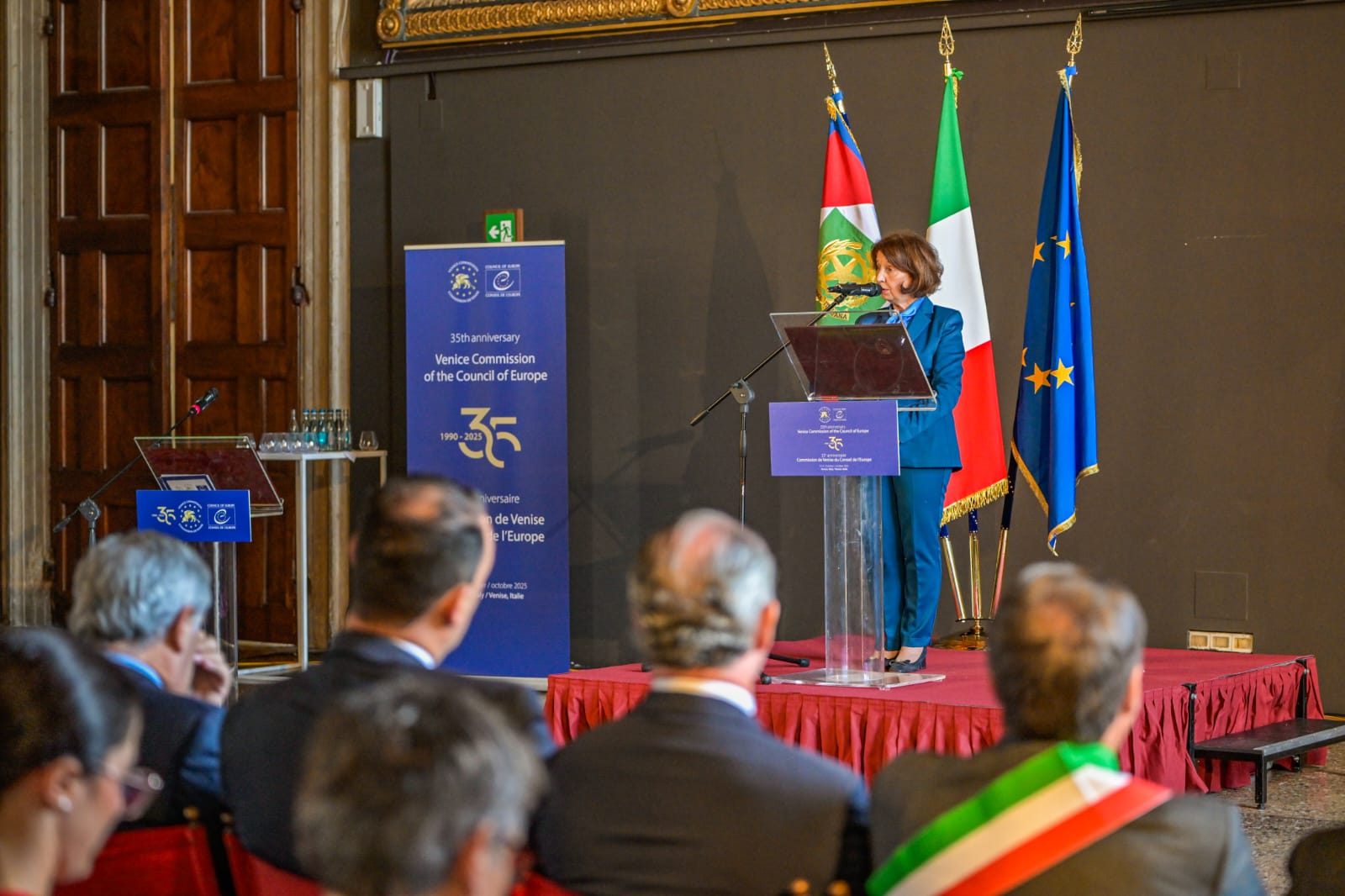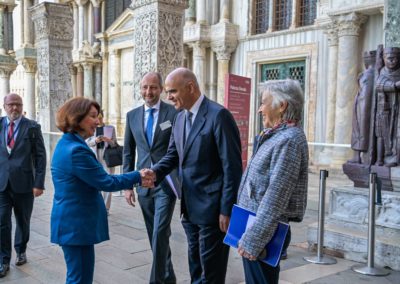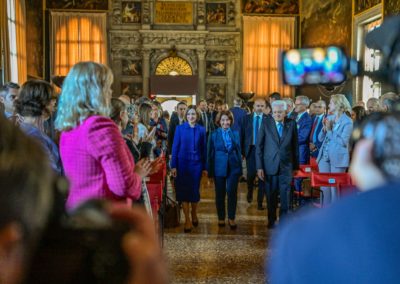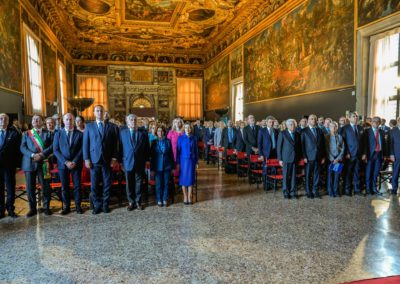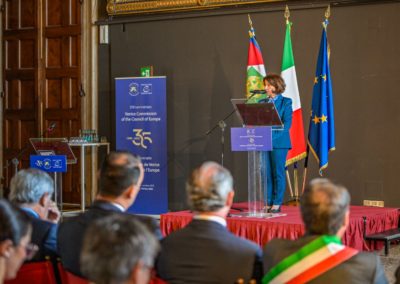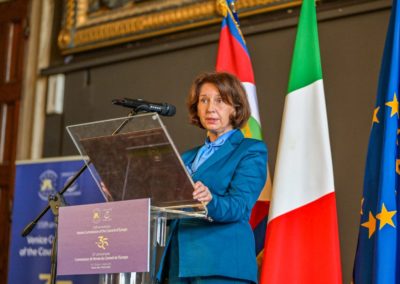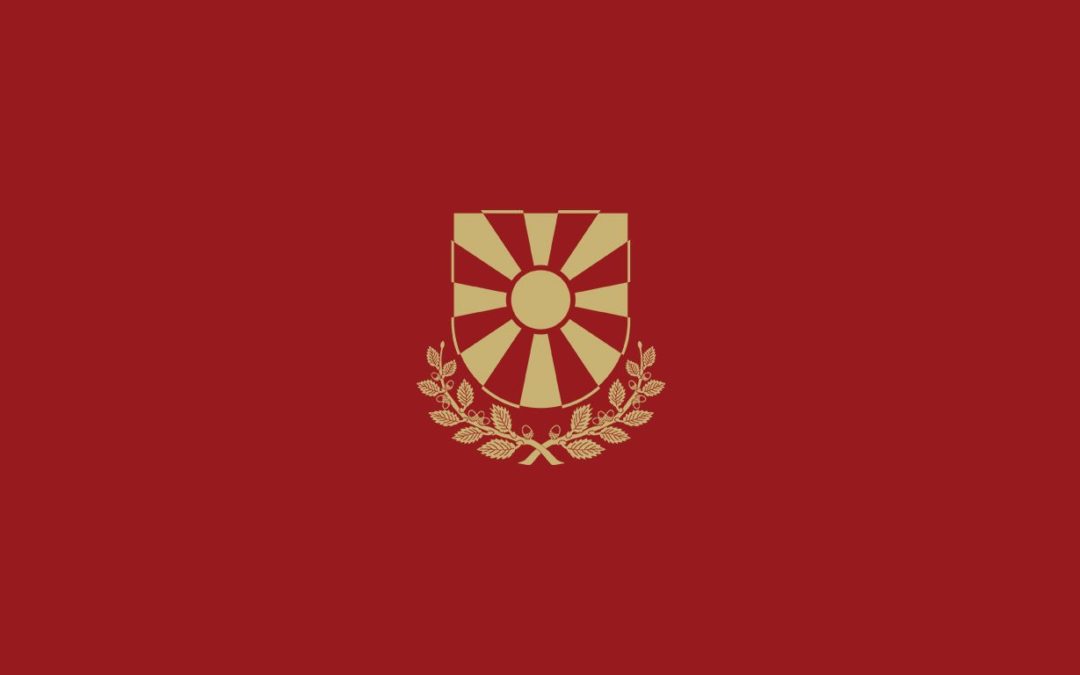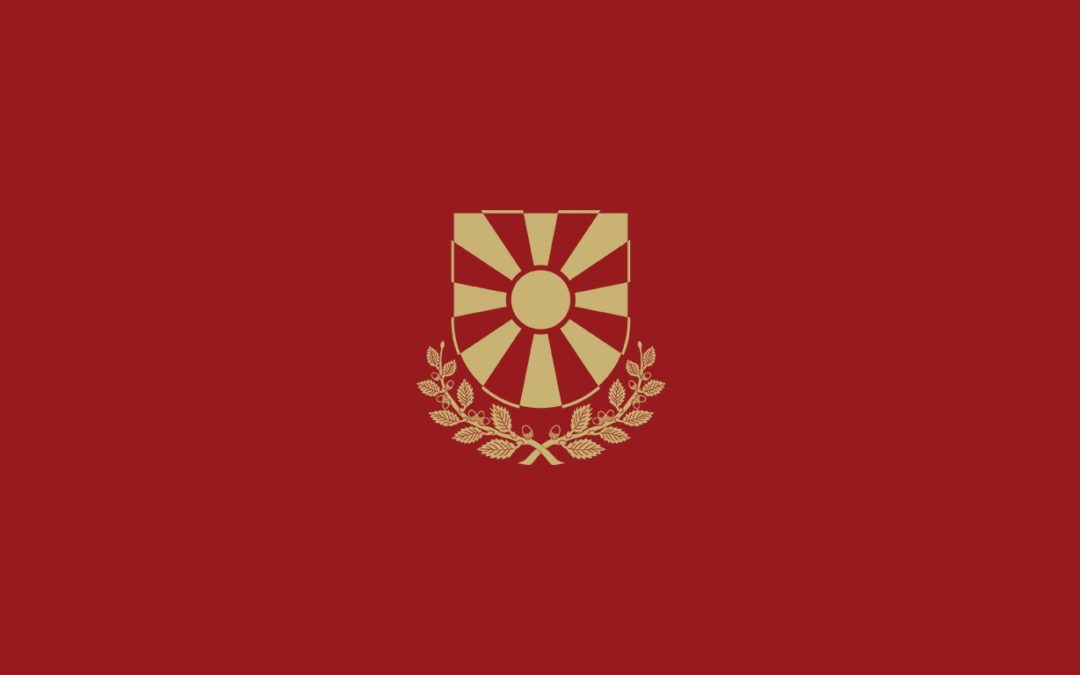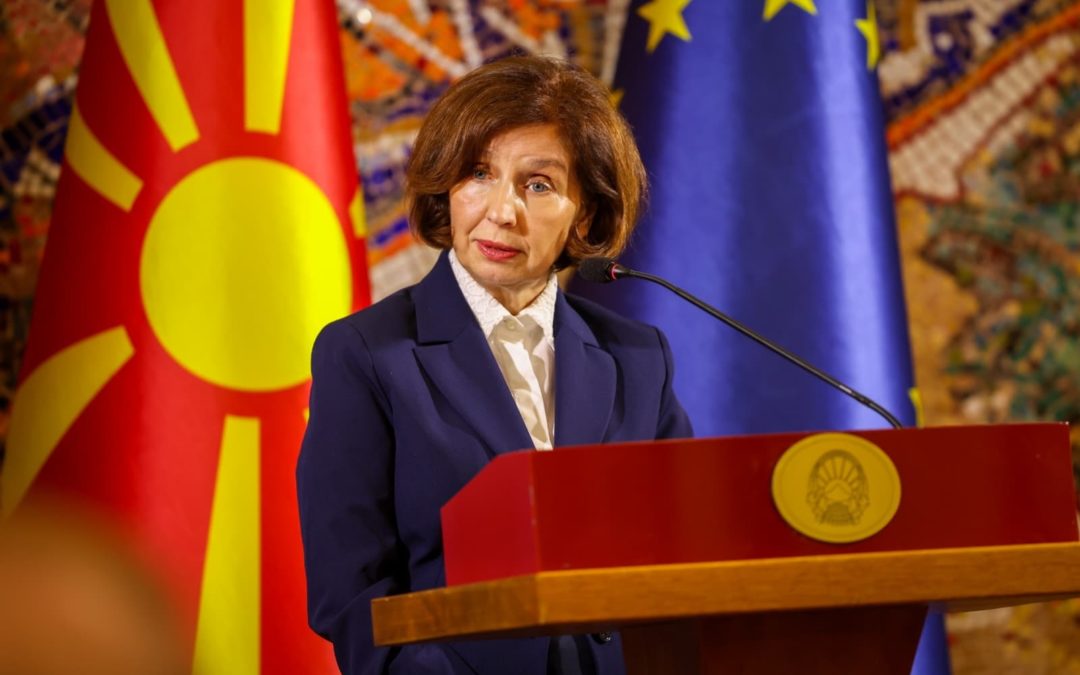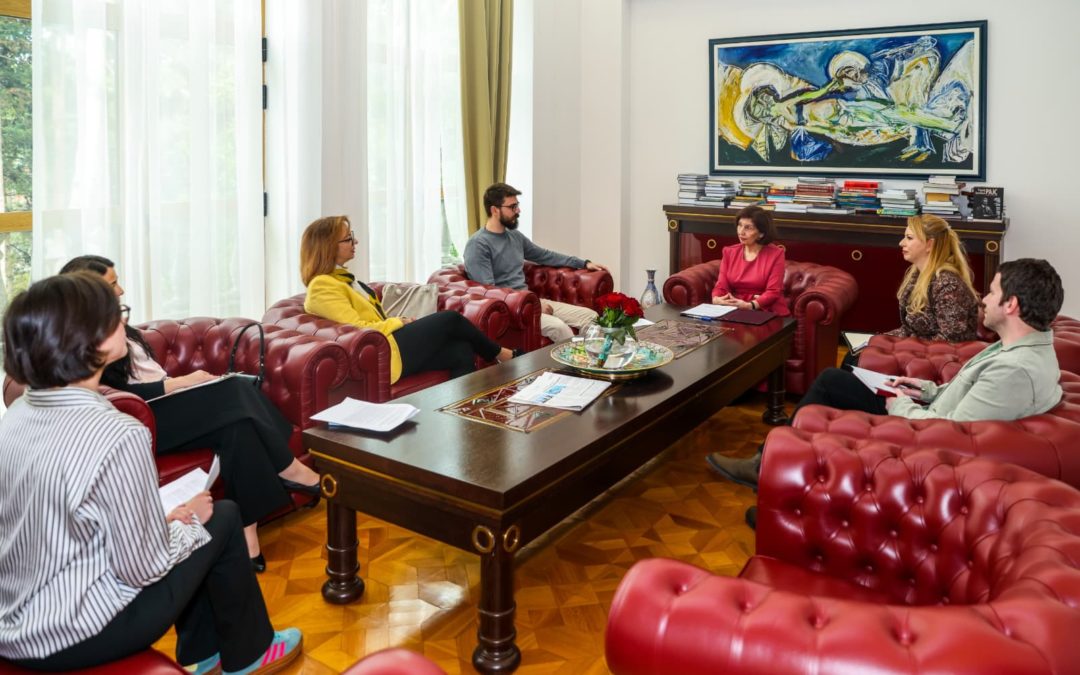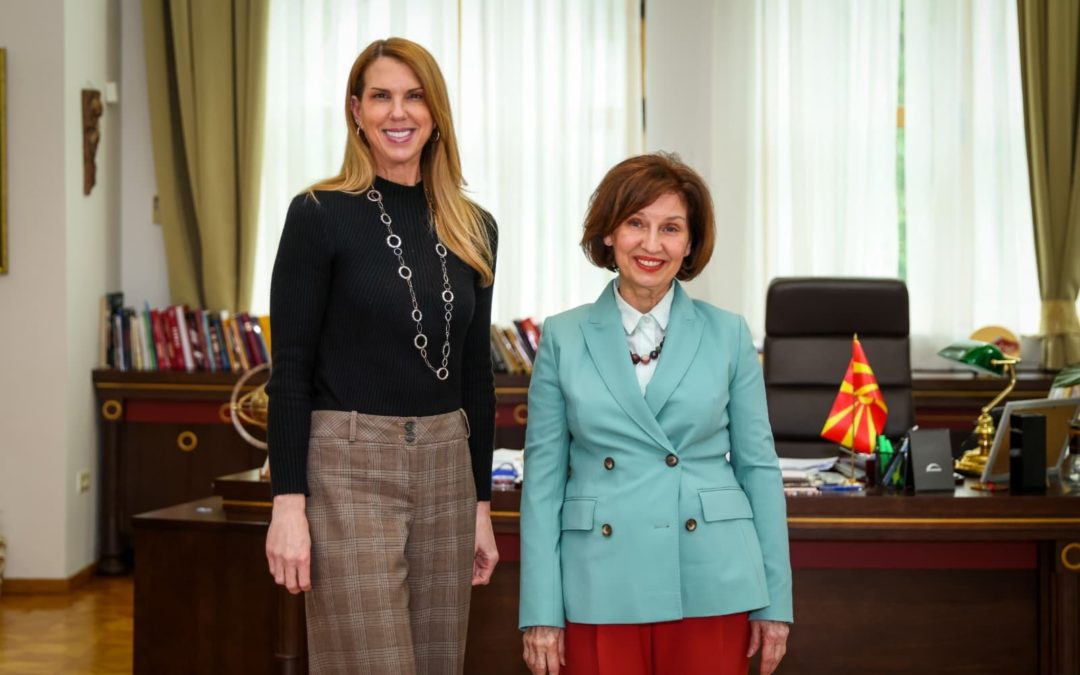President Gordana Siljanovska-Davkova addressed the ceremonial celebration marking the 35th anniversary of the founding of the European Commission for Democracy through Law (Venice Commission), an advisory body of the Council of Europe, in Venice.
For the President, the celebration of the 35th anniversary is not only a ceremonial act, but also her homecoming, as a professor of constitutional law, a former member of the Commission and as the president of a country that received assistance from the Venice Commission in the complex process of democratic transition and consolidation.
She expressed her gratitude for the trust shown and for her participation in shaping the democratic stories of the countries of Central and Eastern Europe.
According to her, independence, expertise and humanity in the work make the Commission a unique body, which is not only a collection of legal minds, but also a living conscience of constitutional democracy.
For the President, the strongest side of the Commission was and still is the ability to build bridges between East and West, North and South, between theory and practice, between law and life itself.
At the eminent gathering, in the presence of the President of the Italian Republic, Sergio Mattarella, addresses were given by the President of the Republic of Moldova, Maia Sandu, the Secretary General of the Council of Europe, Alain Berset, the President of the Venice Commission, Claire Bazy Malaurie and the Vice-President of the Council of Ministers and Minister for Foreign Affairs and International Cooperation of Italy, Antonio Tajani. Lessons from transitions, current challenges of backsliding and our commitment for tomorrow were addressed by Egils Levits, former President of the Republic of Latvia, Clifton Grima, Minister for Education, Sport, Youth, Research and Innovation of Malta, on behalf of the Presidency of Malta of the Committee of Ministers of the Council of Europe, Theodoros Rousopoulos, President of the Parliamentary Assembly of the Council of Europe, Mark Cools, President of the Congress of Local and Regional Authorities of the Council of Europe, Ivana Jelic, Vice-President of the ECHR and Michael O’Flaherty, Commissioner for Human Rights of the Council of Europe. The Mayor of Venice, Luigi Brugnaro, delivered an introductory speech.
The integral text of the President’s address is below.
H. E. Mr. Sergio Mattarella,
Dear President of the Venice Commission, Ms. Claire Bazy Malaurie,
Dear Secretary General of the Council of Europe, Mr. Alain Berset,
Distinguished members of the Venice Commission,
Ladies and gentlemen,
It is with profound honor and deep gratitude that I stand before you today, on THE 35th anniversary of the Venice Commission. For me, this is not merely a commemoration of an institution, it is a homecoming. I speak to you as a professor of Constitutional Law, a former member of this distinguished body, and as a President who has experienced firsthand the complexities of democratic transition. I also speak as someone whose democratic story the Commission has helped to shape, and who, in turn, has been privileged to shape others.
When the Venice Commission was established in 1990, the world stood at a crossroads. Many of us remember democratic transition as hybrid and contradictory period in which we entered like “lupus in fabula”. A constitutional stage through which post-communist countries were PASSING during the first part of the 1990s was termed “constitutional revolution” by some authors. Within several years, 18 new constitutions had been passed. The new constitution becomes the instrument of the new, democratic consensus. The old democracies offered their assistance through the foundation of the European Commission for Democracy through Law (Venice Commission). The Commission began as a fellowship of eighteen countries, united by hope, urgency, and a profound belief in law as the bridge toward peace.
Today, that circle has expanded to sixty-one members. The family has grown and with it, its duty. It is no merely a consultative body producing opinions on constitutions and laws, but a competent advisor on constitutional matters, guardian of the rule of law, mediator in times of deep division, and companion to nations seeking their democratic path.
Over time, I have reflected on what makes this Commission so remarkably enduring. My conclusion is simple yet powerful: ITS strength lies in trust. States turn to Commission not only for legal expertise, but for reassurance that they are not alone, that there exists a partner who listens, criticizes, proposes and who reminds that democracy, can also be profoundly resilient. It thrives only when nurtured with care and adapted thoughtfully to every unique context, for, as we know all too well, there is no universal remedy.
The countries it has assisted tell a compelling story of transformation. Many began their journeys scarred by conflict or weakened by authoritarian legacies. Yet, through every opinion, study, amicus curiae, code of good practice, or compilation, a quiet but powerful transformation took root.
Over the past three decades, the Venice Commission has earned its reputation as one of the world’s most authoritative voices on constitutionalism and democracy. From its creation by a visionary group of European states to its global expansion, it has evolved into a true community of nations united by shared values: respect for THE rule of law, fundamental rights and freedoms, democracy.
At its core, the Commission brings together leading constitutional experts, judges and scholars from across the globe; individuals devoted to the principles that sustain democratic life. Through their dedication and independence, the Venice Commission continues to offer guidance to countries and international organizations, ensuring that constitutions and laws remain aligned with the ideals of democracy. It is, without doubt, a benefactor.
The Commission’s contribution to global constitutionalism cannot be overstated. Through its work, it promotes enduring principles such as the separation of powers, accountability of public officeholders, checks and balances and solidarity. These are not abstract notions, they are the living foundation of Europe’s shared constitutional heritage, which the Commission tirelessly seeks to preserve and strengthen.
One of its landmark achievements is the Rule of Law Checklist, adopted in June 2016. This groundbreaking document has become a compass for evaluating the state of the rule of law across the world. Indeed, as stated in the Preamble to the Statute of the Council of Europe, the rule of law alongside individual freedom and political liberty, forms one of the three essential principles of any genuine democracy.
The Commission’s opinions, though non-binding, carry immense moral and expert authority. They belong to the domain of “soft law,” yet their impact often resonates more profoundly than formal obligations. As we know, soft instruments can not only complement hard law but enhance its effectiveness.
Its influence now stretches well beyond Europe, from Central Asia to Latin America and the Southern Mediterranean, where it supports judicial reforms, constitutional justice, and democratic transitions. In doing so, the Commission has become a global beacon of constitutional guidance.
But as we gather today, celebrating this rich legacy, we must also confront the challenges of our time.
We live in an age of uncertainty, of disinformation and polarization, where lack of trust in the institutions threatens even the most established systems, and where populism often seeks to further erode that trust. We are witnessing, once again, the testing of constitutional resilience: from pressures on judicial independence, to manipulation of electoral processes, to the weakening of democratic discourse itself.
These challenges call upon the Venice Commission to adapt without losing its essence. Our task is to defend constitutional democracy not only through legal instruments but through renewed dialogue, education, and example.
We must reaffirm that the rule of law is not an obstacle to progress, as some wish to project, but its very precondition.
We must ensure that the fruits of our work translate into benefits for the citizens, not only for governments.
And we must deepen our cooperation with youth, academia, and civil society, those who carry the torch of democratic values into the future.
The Commission’s greatest strength has always been its capacity to build bridges, between East and West, North and South, between theory and practice, between law and life itself. In an age of division, this bridge-building mission has never been more vital.
The opinions of the Venice Commission today shape not only the actions of the Council of Europe and the European Court of Human Rights, but also the jurisprudence of the European Union and the work of international institutions across the globe. This wide-ranging influence reflects the profound respect the Commission commands and the trust it continues to inspire.
My friends, when the Venice Commission was born, it was founded on faith: faith in law, faith in dialogue, and faith in democracy. That faith has guided us for decades. Yet, faith alone is never enough. It must be renewed, constantly, through our work, our courage, and our compassion.
And so, as we mark this anniversary, let us remember what makes this institution unique: its independence, its expertise, and its humanity. The Venice Commission is not merely a body of legal minds; it is a living conscience of constitutional democracy.
Let this celebration not be only a reflection on the past, but a call to the future, a future in which the Venice Commission, my Commission, continues to shine as a beacon of integrity, wisdom, and hope.
That, ladies and gentlemen, is the true legacy and the enduring promise of this precious institution that will continue legal war against the rule of man.

